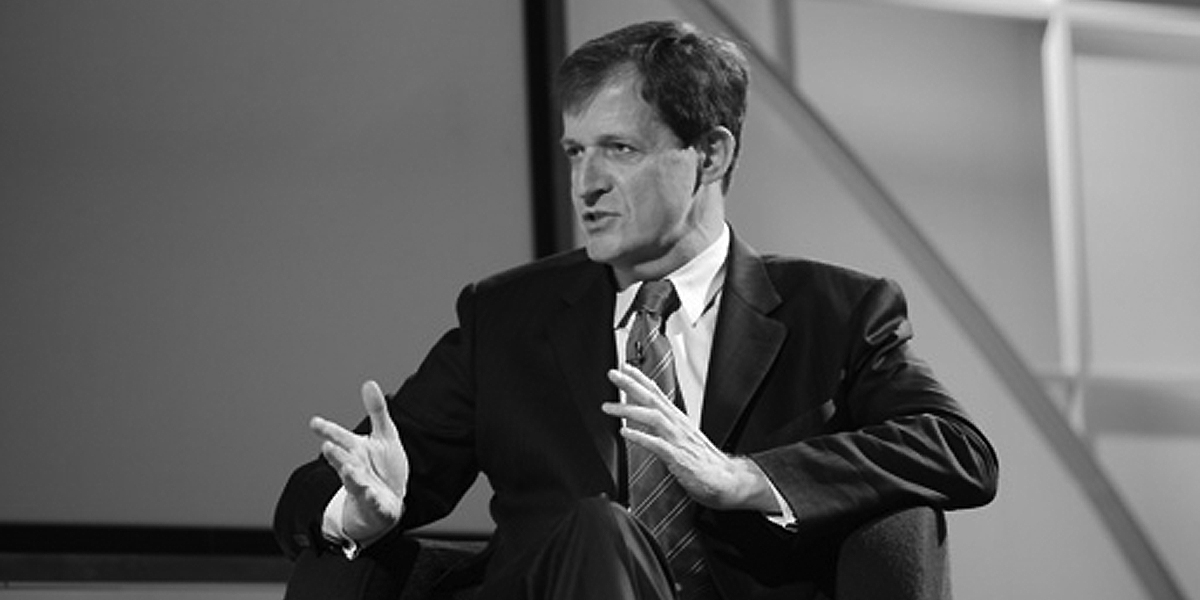Giving ‘one nation’ meaning: Interview with Alastair Campbell
One of the biggest talking points in Labour circles last month was Alastair Campbell’s return to Labour. Following a leaked memo, it was confirmed that Campbell has joined Ed Miliband’s advisory election team in the run up to 2015. Campbell...
One of the biggest talking points in Labour circles last month was Alastair Campbell’s return to Labour. Following a leaked memo, it was confirmed that Campbell has joined Ed Miliband’s advisory election team in the run up to 2015. Campbell will be drawing on years of experience as former British prime minister Tony Blair’s spokesman, press secretary and director of communications and strategy. In a timely, and outspoken interview with the man behind the Blair machine, Campbell candidly disclosed his views on one nation Labour and getting Miliband into power.
Miliband’s decision to bring Campbell back into the party may at first appear an odd choice, particularly as Miliband is at pains to distinguish the party from New Labour. “The new generation of Labour is different. Different attitudes, different ideas, different ways of doing politics,” said Miliband when he became leader. Although Campbell is best known for the success of the New Labour campaign, he has not been brought back into the fold to promulgate ‘New Labour’ – rather he has been brought on board due to his wealth of PR experience in rebranding the party.
Miliband rebranded the party last year when he launched one nation Labour at the Labour party conference. Although one nation Labour may have been formally launched, Campbell believes there is still a lot of work to be done. “One nation is not established. It means to the public whatever the public wants it to mean,” said Campbell. Members of the party share Campbell’s concern that one nation is a new name without new content.
Drawing on years of experience as Blair’s master of spin, Campbell will work on giving one nation substance. Campbell’s role will involve sending a clear political message that “the Labour party is the political voice and the political body that will represent the many and not the few,” he said. Campbell has under a year and a half to convey Labour’s political message to the electorate, and he does not seem hopeful. “I think it will be Lab-Lib coalition, I was right in 2010, I knew it was going to be a Tory-Liberal coalition.”
One of the Conservative party’s key soundbites in the run up to the 2010 general election was the ‘big society’. “Cameron is very tactical. He knew they were not getting elected because people think they are a right-wing party. Cameron wanted to row back on Thatcher’s ‘No society’ speech – to say there is such a thing as society, so he introduced the big society sound bite. The problem is he didn’t have a clue what it meant in terms of policy, so he’s dropped it.”
According to Campbell, Labour will only win the next general election if people have a clear understanding of what one nation Labour stands for. One nation Labour will only be given substance when backed-up with well-formulated policies that support the philosophy of the party. “One nation Labour worked last year for Ed’s speech but it wasn’t followed through with hard-hitting policy,” he said. To date we can draw on only one hard-hitting Labour policy, the energy price freeze, which Campbell calls a “good one nation policy.” But one policy measure is not enough to win an election.
While Miliband has broken through on energy prices by gaining public support for resetting the energy market, Campbell argues that he needs four further strong policies, “one on the economy, a couple on public services and one about cultural space”. When Miliband formulates his policies it will be imperative that “he uses a sustained campaign. Every time someone attacks the policy he has to defend it. And he has to follow policy through, right to delivery,” he said.
Miliband struck gold with the energy price freeze, a policy that people can identify with. Nationalising railways is another popular policy that Campbell believes “people can latch onto, and should be explored further.” According to a recent YouGov poll, 66 per cent of people believe railways should be nationalised. “The fact that nationalising railways is even on the agenda now suggests we are living in a different age. Following the crash a lot has changed,” he said.
The economic meltdown has changed public perceptions of the role of the markets and of the state. Miliband may have the opportunity following the general election in 2015 to increase state involvement in private enterprises that currently control national interests. Echoing a clear ideological position on the left, Campbell advocates for an active state, arguing “sometimes the role of the government is to take action and control the markets where necessary.” With talk of nationalising national interests, one nation Labour could move towards the left.
The infamous spin agent best known for his maverick, foulmouthed public performances, is actually deeply committed to the left of the Labour party. Campbell’s affinity with Labour stems from his time at Cambridge, where he “battled with class conflict” and feelings of being “an outsider”. His early experiences defined his tribal loyalty to Labour. Campbell is here to stay, at least until he has achieved his agenda of getting Labour, a party he believes will strive for a fairer nation, back into power.
